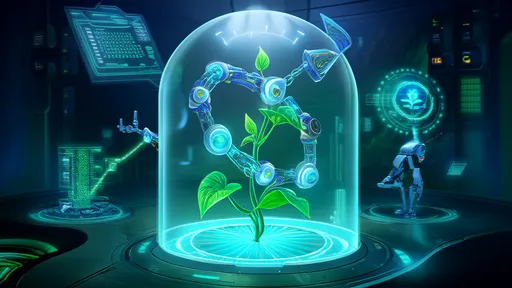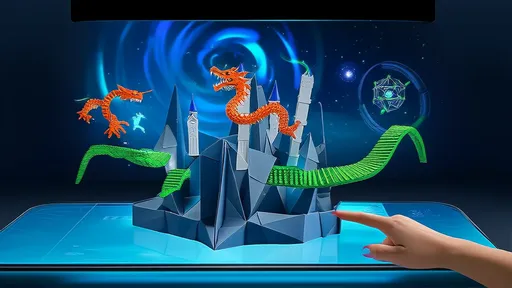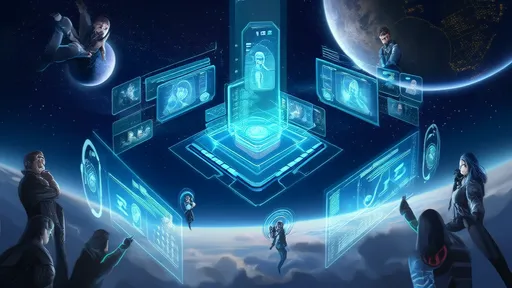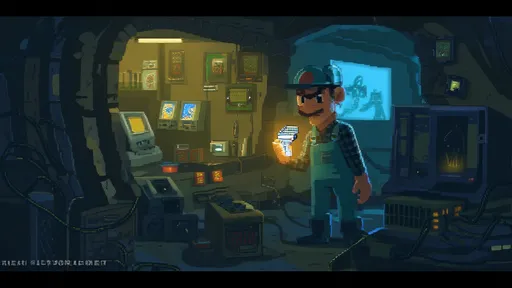The gaming landscape is undergoing a quiet revolution, one that harkens back to the golden age of text-based adventures while leveraging cutting-edge artificial intelligence. Across digital platforms, a new generation of interactive fiction is emerging—not as a nostalgic throwback, but as a radical reimagining of what narrative gaming can achieve when powered by machine learning algorithms capable of generating millions of branching storylines.
Text adventures, those primordial ancestors of modern video games where players typed commands like "go north" or "examine lantern," have spent decades in the gaming industry's attic. Yet their DNA persists in everything from open-world RPGs to visual novels. What began in the 1970s with primitive parsers understanding two-word inputs has evolved into something far more sophisticated—AI systems that don't just respond to player actions, but dynamically generate entire worlds and narratives in response to them.
The breakthrough comes from applying large language models to interactive storytelling. Where traditional choose-your-own-adventure games might offer dozens of possible endings, these AI-powered systems create narrative branches at nearly every decision point. A player's casual remark to a non-player character about preferring swords to diplomacy might generate entirely new questlines involving weapon masters and gladiatorial combat, while simultaneously closing off political intrigue paths that would have existed had they chosen differently.
What makes this technological leap remarkable isn't simply the quantity of branches, but their quality. Early attempts at procedural storytelling often produced incoherent or repetitive narratives. Modern systems can maintain character consistency across hundreds of interactions while ensuring plot developments remain logically connected to prior events. The AI remembers that the tavern keeper mentioned her daughter's illness three hours of gameplay ago, and will reference it appropriately when the player later acquires healing potions.
Several startups have emerged as pioneers in this space. Some focus on adapting existing literary properties into infinitely replayable text adventures, while others build original universes where no two playthroughs share identical story arcs. The business models vary—from premium narrative experiences to free-to-play systems where players pay to unlock certain story branches or character perspectives.
The implications extend beyond entertainment. Educators are experimenting with AI-generated historical scenarios where students can explore alternative outcomes to real events. Therapists see potential in guided narrative experiences that help patients process trauma through metaphorical storytelling. Even corporate training programs have begun adopting branching scenarios for leadership development.
Yet challenges remain. The computational resources required to generate high-quality narrative branches in real-time are substantial, leading some developers to implement hybrid systems where major story beats are pre-authored while dialogue and minor encounters are dynamically generated. There are also creative concerns—without careful tuning, AI systems can default to predictable tropes or struggle with maintaining narrative tension across extended play sessions.
Perhaps most intriguing is how these systems are changing player expectations. Gamers raised on static narratives now encounter stories that remember their smallest choices and reflect them back in unexpected ways. A throwaway decision in the game's first hour might blossom into a major plot thread dozens of hours later. This creates unprecedented replay value, but also demands new design philosophies—how does one market a game where no trailer can possibly showcase all its potential stories?
The technology's rapid advancement suggests we're merely at the beginning of this renaissance. Future iterations may incorporate voice recognition for truly natural interfaces, or generate accompanying visuals in real-time. Some developers speculate about persistent story worlds where player actions collectively shape narrative possibilities for everyone.
What began as a revival of text adventures has become something far grander—a redefinition of interactive storytelling itself. As the boundaries between author, algorithm and audience blur, we're witnessing not just the return of a classic gaming format, but the emergence of an entirely new narrative medium. One where stories aren't just told or experienced, but grown organically through the interplay of human creativity and artificial intelligence.

By /Jul 3, 2025

By /Jul 3, 2025

By /Jul 3, 2025

By /Jul 3, 2025

By /Jul 3, 2025

By /Jul 3, 2025

By /Jul 3, 2025

By /Jul 3, 2025

By /Jul 3, 2025

By /Jul 3, 2025

By /Jul 3, 2025

By /Jul 3, 2025

By /Jul 3, 2025

By /Jul 3, 2025

By /Jul 3, 2025

By /Jul 3, 2025

By /Jul 3, 2025

By /Jul 3, 2025